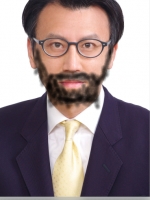Art generated solely by AI can't be copyrighted, federal appeals court says
聯邦上訴法院判決理由:僅由人工智能生成的藝術無著作權。
A federal appeals court has ruled against a computer scientist who sought to copyright a work of art made by his artificial intelligence system, the “Creativity Machine.”
聯邦上訴法院判決不利於電腦科學家,該電腦科技家就其開發人工智能系統“Creativity Machine.”所創作之美術著作申請登記著作權。
Computer scientist Stephen Thaler is not entitled to copyright artwork made solely by AI, the U.S. Court of Appeals for the District of Columbia Circuit ruled Tuesday.
美國哥倫比亞特區巡迴上訴法院星期二判決,電腦科學家Stephen Thaler 無法就僅由人工智能創作的畫作取得著作權。
簡單來說這個判決所要場闡釋的就是,全由人工智能創作的畫作,無法取的著作權。著作權法規定著作之創作者係著作“人”;要取得著作權前提必須是人的創作,全由機器創作之畫作,不符合著作權法之權利保護要件;如果畫作非全由機器創作,而是由機器輔助所創作,是有可能取得著作權的。
Reuters and Courthouse News Service have coverage of the March 18 opinion.
“The Creativity Machine cannot be the recognized author of a copyrighted work because the Copyright Act of 1976 requires all eligible work to be authored in the first instance by a human being,” the D.C. Circuit said in a decision by Judge Patricia Millett, an appointee of former President Barack Obama.
The holding makes is unnecessary to address the U.S. Copyright Office’s argument that the U.S. Constitution also requires human authorship of copyrighted material, Millett said. The appeals court also said Thaler had waived an argument that he could obtain a copyright because he made and used the Creativity Machine.
The D.C. Circuit said its decision does not prohibit a copyright when a work is authored by a human with the help of AI.
“The rule requires only that the author of that work be a human being—the person who created, operated or used artificial intelligence—and not the machine itself,” Millett said.
Millett acknowledged that the Copyright Office has rejected some copyright applications based on the human-authorship requirement, even when a human is listed as the author.
“Line-drawing disagreements” over how much that AI contributed to a work aren’t issue in Thaler’s case, however, because he listed the Creativity Machine as the sole author, the appeals court said.
Thaler plans to appeal the decision, his attorney, Ryan Abbott, told Reuters.
